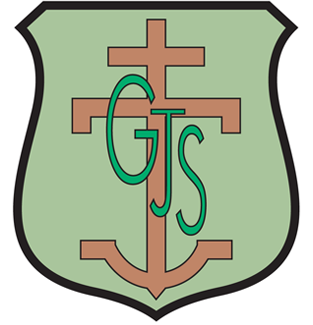History Intent
Intent, Implementation and Impact
Intent
At Greengate Junior School, we use the CUSP History curriculum to provide a carefully sequenced, knowledge-rich education that ensures pupils develop a deep and secure understanding of the past. Our curriculum builds cumulatively, allowing pupils to revisit and extend their learning over time, strengthening their long-term retention and historical thinking.
A key priority in our History curriculum is diversity and anti-racism. We are committed to teaching history through multiple perspectives, ensuring pupils encounter histories that reflect the experiences of different ethnic, cultural and social groups. By embedding historical enquiry and critical thinking we empower pupils to understand how the past has shaped the present and develop the confidence to question historical and modern injustices.
Alongside British and world history, we value and celebrate our local history, helping pupils see the connections between their own community and the wider world. By exploring local historical events, figures and landmarks, we foster a sense of belonging and responsibility.

Greengate’s curriculum aims to foster a curiosity, excitement and engagement in learning about the past. We bring history to life through storytelling, immersive experiences, enquiry-based learning and hands on activities. We want children to develop a love for history – one that sparks their imagination, deepens their understanding and encourages them to ask big questions.
Our curriculum ensures pupils:
- Develop a secure chronological understanding of local, British and world history.
- Revisit and deepen knowledge through a carefully structured curriculum.
- Appreciate the significance of our local history, recognising its impact on their community and linking it to national and global events.
- Engage with diverse perspectives, including the impact of colonialism, migration and global histories.
- Learn to critically analyse resources, question interpretations and recognise bias.
- See history as relevant to their lives today, making connections to modern issues and their own identities.
- Develop an excitement and lifelong curiosity about the past.
Implementation
- Planning is based on the CUSP curriculum and linked to the National Curriculum.
- Our history curriculum is taught each term in blocks to allow pupils to fully immerse themselves in each topic. This approach deepens understanding and helps pupils retain and retrieve knowledge more effectively.
- The curriculum is organised into six substantive concepts and six disciplinary knowledge strands.
- Substantive concepts – community, knowledge, invasion, civilisation, power and democracy.
- Disciplinary knowledge – chronology, cause and consequence, change and continuity, similarity and difference, evidence and significance.
- Learning is sequenced and interleaved, ensuring key knowledge and concepts are revisited and deepened over time.
- The key knowledge and skills that children acquire and develop throughout each block have been designed to ensure progression between year groups throughout the school.
- We have a clear, shared understanding of the contents and concepts that pupils need to know.
- Each topic is introduced with reference to the chronology of previous topics.
- We bring history to life through storytelling, drama, debates, artefacts, primary sources, guest speakers, digital experiences and visits to museums, historical sites and local landmarks.
- Each unit is rich in vocabulary, history specific vocabulary is taught explicitly.
- Cross curricular outcomes in history are specifically planned for (where appropriate), with strong links between the history curriculum and English lessons (guided Reading and writing) enabling further contextual learning.
- Retrieval practice activities at the start of each lesson to recap prior knowledge.
- Opportunities to research, articulate their thinking, challenge, debate and draw conclusions
- Emphasis on drawing links and connections between periods of time across history.
- Pupils with additional needs are supported to access the learning as appropriate depending on their need. Support for pupils with SEND focusses on pupils’ ability to access the breadth and depth of the curriculum over time, rather than their ability to complete the immediate task.
- The CUSP curriculum enables us to identify gaps and misconceptions and address them quickly.
- Pupils complete a quiz at the start and end of each unit to assess prior knowledge, inform planning and measure progress.
- Adults observe, question and listen to pupils during lessons to evaluate their understanding.
- ‘Live’ marking and feedback at the point of learning.
Impact
Through our history curriculum pupils leave Greengate with:
- A secure, well connected understanding of historical periods, concepts and events.
- The ability to recall and apply prior knowledge, showing how their historical understanding has deepened over time.
- A critical and reflective mindset, allowing them to question narratives, challenge stereotypes and engage with debates.
- A genuine enthusiasm for history, developed through immersive experiences, storytelling and hands-on learning.
- An appreciation for the impact of history on today’s world, including how racism, colonialism and migration have shaped modern society.
- Confidence in using precise vocabulary.
- A lifelong curiosity and respect for diverse histories, empowering them to be informed members of society.
- A strong understanding of their local history, fostering pride, awareness and a sense of connection to their community.
- The ability to ask relevant historical questions as well as being able to answer them using substantive and disciplinary knowledge.
